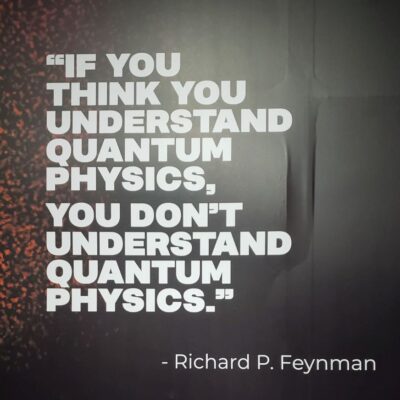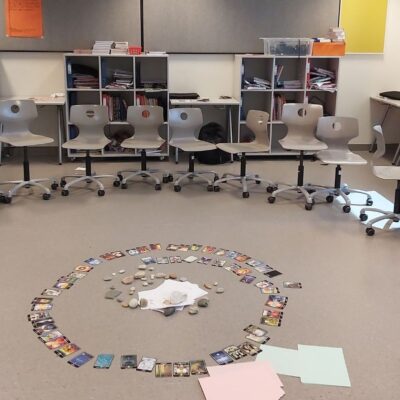
Complex times can mean complex grief.
The world as we know it is changing. It’s changing rapidly. Every day brings new changes, new loss, new normal that needs adjusting to. It needs adjusting to at a speed that is faster than most of us are comfortable with. Just when you start to feel like you are finding balance, everything changes again.
Enter complicated grief.
Before I dive in, I want to be clear that I am not a learned scholar about complicated grief. My musings today are not as someone who is a professional expert. I am, however, a street-smart learner about complicated grief. I have a deep, personal, and long-lasting relationship with complicated grief. It has been my constant companion for the better part of a decade. While I might make friends with it one day, for now, I will say that we’re begrudgingly frenemies.
Complicated traumatic grief is different than normal grieving.
In a “normal” situation, there is a single event (like the death of a loved one or the loss of a job). That event means that change is happening. Human beings go through a fairly predictable process known as the grief cycle when an event happens. Each person’s path through that cycle is different and it is different depending on the magnitude of the event – the time it takes, the specific ways we express ourselves in each phase, whether we move through it in a linear path or cycle through some of the phases a few times before we are really ready to move forward. Whatever path it takes, human beings generally emerge from their normal grief. We are ready to move forward in life again.
In complicated traumatic grief (and I’m taking some liberty with the official definition here), there is not always just one event. There can be many events. The constant and rapid-fire of events happening all the time each triggers its own grief cycle. Instead of 1 relatively predictable grief cycle to move through, there are many happening simultaneously inside of each person involved in the events. A person can find themselves in different phases of grief about different things at the same time.
The grief isn’t being triggered by a “normal” event. We expect grief from the death of a loved one, unexpected job loss, ending of relationships, and other predictable events that most people go through in life at some stage. Traumatic grief is triggered by the unexpected. Loss of freedoms, unexpected death (people dying in an accident or seemingly healthy people in a pandemic), drastic changes to routine life, violence or the threat of violence (mental, physical or emotional), and other “not-normal” events make grief complex and traumatic.
To add to the complexity, unlike in normal grief where the one event happened and it is in the past, we are faced with the certainty of more traumatic events happening in the near future and the uncertainty of when these traumatic events will stop happening. Any human being who has been through normal grief before (like the ending of romantic relationships) knows on some level that when we go through grief we eventually feel better. We know that life carries on. When faced with this uncertainty of when the traumatic events will stop happening, we lose the anchoring point of “knowing” this will get better too. It’s much more difficult to move through this kind of grief when you just don’t know when it will end.
Complicated grief is just that…it’s complicated. And it’s probably why you are feeling overwhelmed right now. Globally, we are all facing daily situations that fit the description of what causes complicated grief.
So now what?
If we’re all in the midst of a time in the world that has all the ingredients for complicated traumatic grief, what do we do for ourselves?
I know for certain what NOT to do. It is not a time to put all feelings on hold, promising yourself that you’ll grieve when it’s all over. Moving through complicated grief means taking time to experience emotions every day. Feeling the feelings of today means you don’t build up a big well of them stored up in your head and heart and overshadowing your present and future moments.
I also know that while we’re navigating these challenging times, it’s critical to keep moving forward in the best ways we know. While we will never get back to “normal,” we can take steps every day to move towards what the new normal will be like.
Making Genuine Contact
When I am uncertain about what’s next in my life or in my work, I always fall back on my Genuine Contact tools and approaches. In working with Genuine Contact, we talk about the importance of making genuine contact with Self, One Other, Community, and Creator/Creation. In these times of uncertainty in my life, these 4 ways of making genuine contact are my navigation points. They help me see where I am and where I would like to move to.
If I pay attention to these 4 ways of making genuine contact, then I don’t have to know anything else or do anything else. I can keep moving myself forward, figuring out just for today what my new normal looks and feels like.
I’m not going to tell you how to make genuine contact in these ways. The answers to “how” are unique to each individual. I am going to ask you some reflection questions to get you started in creating a picture of your unique “how” to make genuine contact.
Genuine Contact with Self
Start here. Genuine contact with self is a necessary ingredient as you look towards the other ways of connecting.
The ways in which one can make genuine contact with self are many. Each person will have the best ways for you to do this and those needs of the best ways might change from day to day. A simple way to figure it out is to ask yourself “is my self-love greater than my self-critic today?” If your self-love is feeling greater, what can you do to nurture it? If your self-critic is feeling greater, what can you do to increase your sense of self-love?
With One Other
How are you genuinely connecting with one other today? This might feel like a ridiculous question in the midst of self-isolation and social distancing. But perhaps it is the most important question in the midst of self-isolation. How are you genuinely connecting with one other today? Who feels important today to genuinely connect with? Do you have energy for 1 connection? Or maybe more? How can you make genuine contact when physical contact is limited?
Community
What communities are you a part of? Your neighborhood, work, circle of friends, teams or clubs, and/or religious community (and any other gathering of people around a common purpose) can all be a part of this. Odds are the ways you are used to connecting with your community are non-existent right now. If those “normal” ways of making genuine contact with community are on pause, how can you make genuine contact differently? What communities do you experience as life-nurturing? What communities do you want to be in genuine contact with today? If you have the time, energy and desire to do so, how can you support your community/communities to make genuine contact with each other?
Creator/Creation
However you experience this – big “S” or little “s” Spirit/spirit – how are you in genuine contact with creation today? How are you making intentional time to connect to creation today? What practices will best support you in feeling connected? How much time and energy do you want to commit today to these practices?
It’s not everything, but it’s a start
Being in genuine contact with self, one other, community and creator helps to sharpen the lens through which you see and experience your own grief and that of the people and communities around you. In the days, weeks and months to come, there will be much grieving to be done. Grieving that is done as part of a bigger cycle of transformation that offers the opportunity to reframe for the new and build something from all that we have learned and experienced. As we begin to be familiar with our own grief, perhaps we can also strengthen our compassion for others as they process their grief too.
This focus on genuine contact isn’t meant to be a solution for it all. But it is a solution for staying focused on what we can control for ourselves right now and how we can individually keep moving forward in small steps every day as we collectively move forward through these challenging times and into the new normal that is developing.
Image by Free-Photos from Pixabay









D.L. Gottlieb
Thank you for this wonderful article!
Elisabeth
Thank you, dear Rachel, for writing this great article, that made me reflect on the complicated grief processes I’ve lived, and possibly am living. For me, these grief processes have helped me appreciate the love and friendships most of all. There is this balance at the end of the day, which tends to be more positive than I could ever expect. Thank you!!!